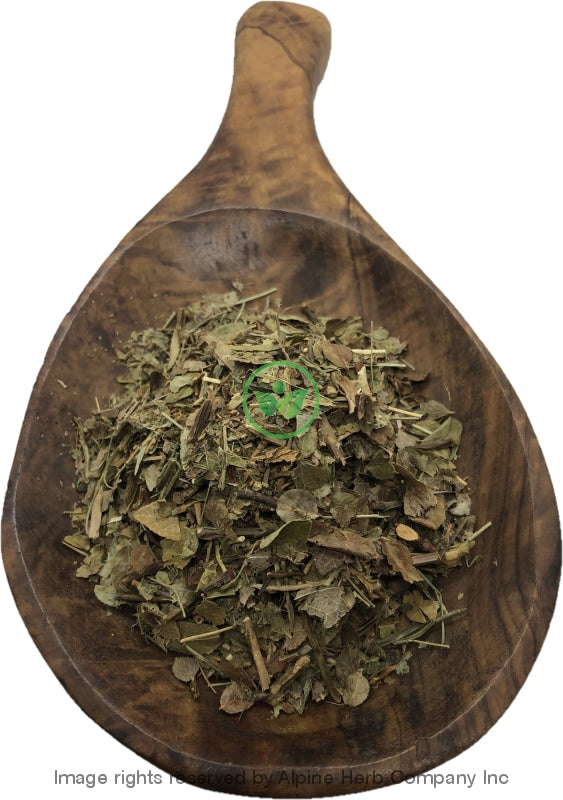Blueberry Leaves Cut Alpine Herb Company Inc.
$ 8,99 $ 5,39
Botanical Name: Vaccinium myrtillus
Common Name:
- English: Blueberry
- Also, known as: Bickbeere, Moll berry, Whortleberry. Black Whortles. Whinberry. Trackleberry. Huckleberry, Hurtleberry, Adara, Airelle, Blue berry, Bog bilberry, Bickbeere, European blueberry, Blaubeere, Brimbelle,Blaeberry, Blauessen,
Habitat: Europe & North America
Origin: Albania
Harvested: Wild
Part used: Leaves
General Information:
Bilberry is native to Europe including Britain and North America. The shrub grows to a height of around 2 meters, has green deciduous, alternate and 5-15 mm wide leaves with 4-5 lobe corolla pale pink or white flower, around 6 mm wide,5 mm long, in clusters followed by two or three round fruit known as blueberries. They nourish best on acidic soil and high grounds. The shrub of Bilberry form large colonies from creeping rhizomes. Leaves and fruit of this plant is used as herb.
How to use:
Hot Infusion:
The basic method for dried herbs and flower is, take 2-3 tablespoons of dried herb in a cup or teapot. Pour hot water over it and cover it with lid for 10-30 minutes. Hot water is needed to draw out the antioxidants, enzymes, vitamins, flavonoids and volatile oils from the botanicals. Strain and squeeze out as much as liquid as possible and enjoy!
Tips:
- You can sweeten your herbal tea with bit of honey, natural fruit juice, stevia leaves powder and or licorice root powder.
- You can make ice cubes or pops by freezing tea in ice tray or pop molds.
Precautions:
You should consult with a qualified healthcare practitioner before using any herbal products, particularly if you are pregnant, nursing, or on any medications.
All information on this website is for educational purpose ONLY
This information has not been evaluated by Health Canada.
This information is not intended to diagnose, treat, cure, or prevent any disease.
| Unit Size | 100g, 200g, 400g, 1kg |
|---|
Prompt shipping and expert packing
Thanks to our longstanding association with UPS FedEx DHL as well as other leading global carriers, we can offer a variety shipping options. Our warehouse staff is highly trained and will be able to pack your goods in accordance with our precise and exact specifications. Your items will go through an exhaustive examination before they will be securely packaged before being delivered. We ship to hundreds of thousands of customers daily in different countries. This is a sign of our determination to become the largest online retailer worldwide. Warehouses and distribution centers are located throughout Europe as well as in the USA.
Note that orders containing multiple items are processed according to the particular item.
We will thoroughly inspect all items ordered before shipping. Most orders are shipped within 48 hours. The delivery time will be between 3 and 7 working days.
Returns
The stock market is always changing. It's not entirely managed by us since we're involved with several entities, including the factory and the storage. Therefore, the actual inventory could fluctuate at any moment. Please be aware that it is possible that your order could be out of stock after you've placed your order.
Our policy lasts for 30 days. If it's been more than 30 days since the date you purchased your item We're sorry to say that we can't offer you a full exchange or refund.
You can only return a product if it is unused and still in the same state as when you received it. The item should be in the original packaging.


































